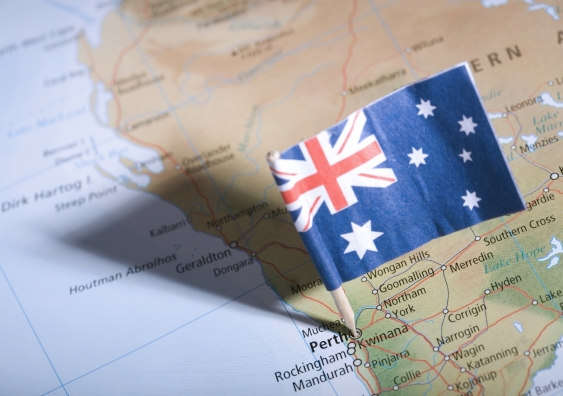Western Australia has the most to lose from GST non-cooperation
Every year or so, rumblings emerge from Western Australia that it might leave the Federation, however these threats are largely empty words, writes George Williams.
Every year or so, rumblings emerge from Western Australia that it might leave the Federation, however these threats are largely empty words, writes George Williams.

OPINION: Every year or so, rumblings emerge from Western Australia that it might leave the Federation. These have returned due to the state receiving less than 30¢ back for every dollar spent on the GST. The result is that $3.7 billion in GST payments this year will be redistributed from WA to the other states and territories.
WA's problem is compounded by the fact that another key revenue source has collapsed. The state enjoyed boom times after an exponential growth in iron ore royalties. This grew from $465 million in 2004-05 to a high of $5.3 billion in 2013-14. It funded enormous growth in public services and infrastructure, and made the state the envy of the nation. The end of the mining boom has seen a rapid decline in these revenues.
The decline in the state's GST share to under 30 per cent does not account for its lost iron ore royalties. This is because the shares of each state and territory are calculated using average data from the prior three years. GST revenue is then allocated to ensure that each jurisdiction can deliver infrastructure and public services to an equal standard. The idea, for example, is that children should have the same quality of education whether they live in Perth or Hobart.
In future calculations, WA's current economic plight will be taken into account, and so its share of GST revenue will eventually improve. This does nothing now, though, to help a state that has become used to enormous wealth from mining revenues. The talk in the west is not of golden opportunities, but of ballooning deficits. Treasurer Mike Nahan has even imposed a public sector hiring freeze and cancelled government advertising.
All of this was predictable. At some point, the WA boom would be followed by a bust, likely made worse by its GST revenue being calculated according to prior years. Rather than planning for this, such as by saving for difficult times, the state has spent its revenue. The result is a fiscal crisis.
WA has responded by asking the Commonwealth Grants Commission to change the formula for allocating GST revenue. It wants its current circumstances to be factored into payment calculations in this and coming years. The commission has rightly rejected this, saying that it would run counter to the aim of providing equal infrastructure and services around the country. It has also pointed out the unfairness of such a change given that the existing formula has been highly favourable to WA over recent years.
WA's response has been to ramp up the rhetoric. Premier Colin Barnett has invoked the American Revolution in suggesting that the state is facing its "Boston Tea Party moment". He has not openly called for secession, though his language certainly evokes that. Instead, he has said that WA will adopt a policy of disengagement and non-cooperation with the rest of the nation.
Such language is not new. WA has failed to co-operate on range of national initiatives. For example, it has never joined the national scheme for resolving family law disputes that operates in every other part of the country. Calls for secession are also common. In 2010, the Rudd government's new mining tax led the WA Minister for Mines and Petroleum Norman Moore to state that there could be 'no doubt that Western Australia would be one of the most successful countries in the world if it was a separate country".
Such words are often spoken, and threats made, but the best they might secure is extra cash from a federal government wary of losing seats in the state. There is no prospect that WA will leave the Federation. The state's most serious attempt to do so came in 1933 when a state vote produced a 2-to-1 margin in favour of WA withdrawing from the Commonwealth. Nothing happened because there was no way this could be achieved. A petition sent to the British Parliament was ignored.
The Australian Constitution locks each state into "one indissoluble Federal Commonwealth". A national referendum could be held to change this, but it would need to be supported by every state. WA secession could be vetoed by Tasmania on the basis that it wants to preserve the significant revenue transfer it gains from GST payments.
All WA has left is to threaten non-cooperation, thereby making Australia's already dysfunctional federal arrangements even more costly and inefficient. If it really wanted to cause chaos, it might withdraw from the national corporations law. This would impose extra costs and red tape upon businesses, making them less competitive internationally.
The impact of such actions could be large, but it would be felt most of all in Western Australia. Its own community and businesses have the most to lose from a failure to co-operate. This is why threats of disengagement and non-cooperation are largely empty words.
George Williams is the Anthony Mason Professor of Law at UNSW.
This opinion piece was first published in the Sydney Morning Herald.